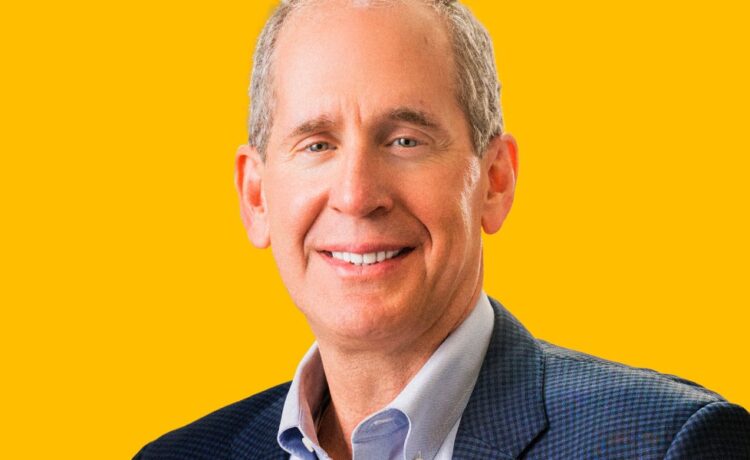Good morning. If you’re a CFO, you’ve been in a board meeting—or will be very soon—communicating your plan to invest in AI. For some insight into that process, I sat down with veteran tech CFO Mark Hawkins. His first piece of advice? “Clearly and unambiguously define the use case.”
“The less difficult it is to understand, the more credible the opportunity,” he explained. “When people can’t explain it, as a seasoned executive, it creates a yellow flag for me.”
Hawkins spent more than 40 years in corporate finance, most recently as president and CFO of Salesforce, which then appointed him president and CFO Emeritus, a position he held through November 2021. He’s also been CFO at Autodesk and Logitech, and he held various positions at Dell and Hewlett-Packard (HP).
Bringing it back to AI, it’s important for CFOs to share with board members “the math, the ROI, the metrics of success” to help build credibility but also be transparent about any risks, and work on building trust, Hawkins said. “It would be wise to really articulate the governance framework for technology,” he added.
It’s also important to make clear the opportunities and potential outcomes—and how those align with the company’s overarching goals and principles.
“When you’re presenting to a super-sophisticated group of technologically advanced people, and most of them could have deep engineering and science backgrounds, it’s a different level of dialogue,” Hawkins continued. Use cases often require additional details, for example.
By 2027, spending on AI software likely will grow to $297.9 billion, with a compound annual growth rate of 19.1%, according to Gartner. The firm’s research also found that boards are asking about AI more than three times as often as considerations tied to cloud computing.
During our conversation, I asked him his personal thoughts on AI, which he compared to electricity, also “a big paradigm.” Artificial intelligence, he said, is going down the path of augmenting people’s abilities and productivity, a journey that potentially includes significant value creation and a chance to create business models that don’t yet exist.
Hawkins also took a moment to reflect a bit on his own journey, including when, at age 21, he joined HP—at the time, a $3.1 billion company. In 2023, its annual revenue was $53.7 billion.
“It was the beginning of my journey into technology,” Hawkins said, “and I’ve been there ever since.”
Sheryl Estrada
[email protected]
Leaderboard
Matt Lesmeister was promoted to CFO at flyExclusive, Inc. (NYSE American: FLYX), a private charter jet company, effective June 25. He will succeed interim CFO Billy Barnard. Lesmeister joined the company on May 30 as EVP and chief of staff and has 14 years of public company experience across various finance roles. Most recently, he served as VP of transformation and strategy at Fox Factory Holding Corp., Before that, Lesmeister served in various roles of increasing responsibility at United Technologies Corporation.
Kevin Nihill was named CFO at Rhinebeck Bancorp and Rhinebeck Bank (Nasdaq: RBKB). Nihill replaced former CFO, Michael McDermott, who retired from the bank after 23 years. Nihill most recently served as EVP and CFO at St. Mary’s Bank. He also served as SVP and treasurer at Berkshire Bank.
Big Deal
Mercer recently published new research about the impact of AI on productivity. The findings, created in partnership with Oxford Analytica, suggest that AI may boost developed markets’ GDP growth up 0.5%, with emerging markets potentially seeing a 0.2% boost in GDP growth.
Another key finding is sectors will experience different AI-enabled productivity boosts: finance and insurance (14%), information and technology (13.4%), manufacturing (6.9%), health care and social assistance (6.3%), transportation and warehousing (5.7%), and hospitality and food service (3.1%, according to Mercer.
Going deeper
“Federal Reserve governor says AI is ‘not going to replace’ central bankers—at least not yet,” is a new Fortune report by Michael del Castillo. He writes: “Lisa Cook, a Federal Reserve governor, isn’t afraid of losing her job to robots anytime soon. Speaking at an Economic Club of New York event on Tuesday, Cook said that when you’re a central bank governor every word counts in a way that not only caught her off guard at first but that likely will catch AI off guard for quite some time.”
Overheard
“By taking a human-first approach and developing AI tools that solve problems everyday people experience, businesses can reach a global audience with broad demographics.”
—Matthieu Rouif, CEO and cofounder of Photoroom, an AI-powered photo-editing app, writes in a new Fortune opinion piece.

















